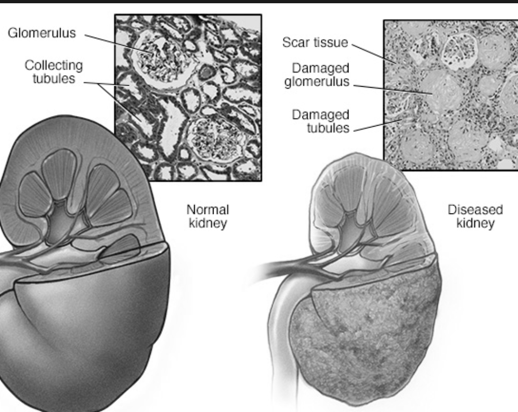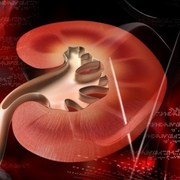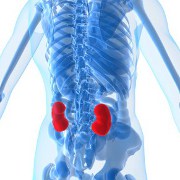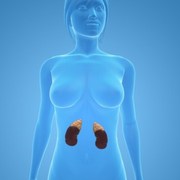The first step to prevent kidney disease is to have your doctor check you for the condition. This is no time to bury your head in the sand and tell yourself that you are fine because you have no symptoms. Remember, as we talked about in the first part of this article, kidney disease doesn’t come with a ton of symptoms initially.
Next, get full acquainted with your blood pressure, and keep your readings at or below 130/80. A lot of people get their blood pressure checked maybe once or twice a year at the doctor’s office, but if you can, please get it checked more often than that. A lot of supermarkets even have free blood pressure machines located near the pharmacies—the next time you swing into Safeway for some milk and eggs, hop on over to the machine and check your systolic and diastolic readings. If you consistently get results over 130/80, it’s time to schedule a check up with your doctor to come up with a way to get those numbers lower. For some, this means eating better and cutting back on salt. For others, it means taking medication.
If you have diabetes, keep your blood sugar levels as close to normal as you can, all of the time. Your physician should be able to advise you on how often you should check your blood sugar.
Also, staying at a healthy weight may be helpful to keeping your kidneys healthy, in part because it can help prevent high blood pressure, diabetes, and heart problems. And while you’re getting your GFR checked, have your doctor order a cholesterol screening at the same time. If your cholesterol comes back too high, work on getting those numbers down through a combination of diet, exercise, and possible medication.
Do you smoke? If so, please stop. I know you probably already realize that smoking isn’t that great for you but truly, if your kidneys could talk they’d be telling you the same thing. Smoking often leads to atherosclerosis, which can in turn reduce blood flow to the kidneys, and it also tends to increase blood pressure.
If tests show that you do have a chronic kidney disease, take heed—you are still in control in many ways and can do many things to keep your kidneys as healthy as possible. Keeping hydrated, eating a low-fat diet, losing weight if necessary, quitting smoking, and avoiding X-ray tests that require IV dye are all things you can do to help keep your damaged kidneys from getting worse.
You can’t see your kidneys are most of the time you can’t feel them, but they are working hard 24/7 keeping our bodies clean. Show your kidneys the respect they deserve, and they will hopefully reward you by continuing to filter wastes from your system day after day.
References:
www.nlm.nih.gov/medlineplus/kidneydiseases.html
www.nkdep.nih.gov/resources/make_the_kidney_connection.htm






Add a CommentComments
There are no comments yet. Be the first one and get the conversation started!